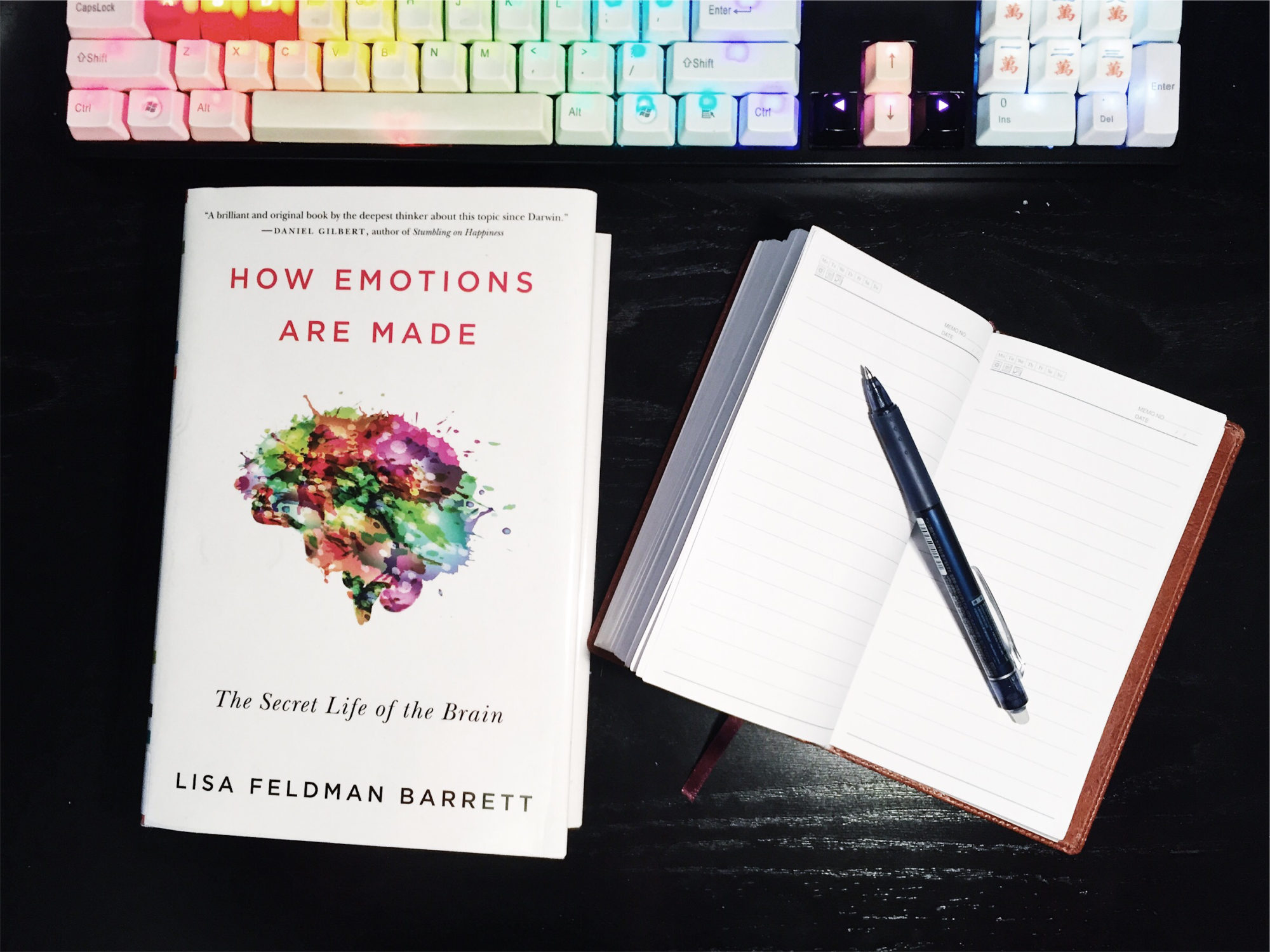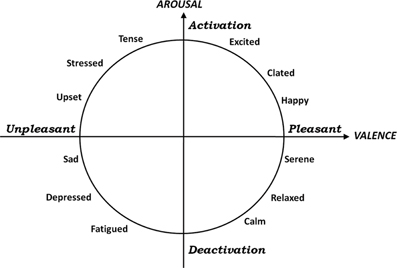
This is a partial summary of the book How Emotions Are made. It is quite a lengthy book, thus I am only focusing on the sections which I find useful and worth to know. I also believe these are the basic knowledge that everyone should understand about themselves. Being aware of where emotions come from put us at a better position of self-monitoring, which can be very helpful at time where negative emotions become overwhelming.
If you don’t mind to know the science behind emotion, but still want to be benefit from it, I made it easy for you to go straight to real-life implementation so you can use this book to improve your emotional life.
1. Emotions are CONSTRUCTED
First we need to omit that people do experience varies feelings, some of which can be so dramatic that it stats to affect our physical performance. Emotions are real. However, they are not objectively real like molecules or neurons, but real in the same sense as money – a product of human agreement.
All our past experiences are organized as concepts by our brains, and then used to guide our actions and give our sensations meanings. When the concepts involved are emotion concepts, our brain generate instances of emotion.
To put it straight: you are not a passive receiver of sensory input (emotion doesn’t “hit you”). In fact, you are an active constructor of your own emotion.
To think of it in a cold-hearted way, no one is ever responsible for the negative emotions you feel because this is just a creation of your own brain.
2. The Origin of Feeling – Interoception
Feeling is our brain’s representation of all sensation from our body budget – such as internal organs and tissues, hormones, and immune system. In short, interoception is the sensory representation of the internal body.
“Affect” (pounced like “apple”) is the general sense of feeling that you experience throughout each day. It is not emotion, but rather a much simpler feeling with 2 features:
- Valence (how pleasant/unpleasant you feel)
- Arousal (how calm or agitated you feel)
The result is always some type of combination of valence and arousal, which makes the Affective Circumplex

3. “Affective Realism”
The definition says “The belief that one’s sense provide an accurate and objective representation of the world.”
While experiencing Affect without knowing the cause, you are likely to treat Affect as information of the world, rather than your experience of the world. in short, you feel what your brain believes, Affect primarily comes from prediction.
Your perceptions are often so vivid and immediate that they compel you to believe that you experience the world as it is, while you actually experience a world of your own construction.
Your experience as the outside world begins inside your head.
Your brain is constantly processing information transmission, which then turns into predictions. Knowledge become your mental concepts (predictions).
4. Categorizing
Concept is represented in the brain as the best matching category, known as Prototype.
i.e. The Prototype of “sadness” is usually described as frowning and crying. Though there are differentiation in every individual, your brain constructs a summary of sadness that best fits the situation.
5.Goal-based Concept
The concepts aren’t fixed definitions in your brain. Your brain has many instances according to your “goal” in a given situation. For example, at a pet store when you are asked “what fish do you want?”, your would say a gold fish or a black molly, but never “grilled salmon”. In this situation, the “goal” is pet, not a meal.
For example, a Greek word “stenahoria” refers to a feeling of doom, hopelessness, suffocation, and constriction.This emotion concept would come handy in some romantic relationships.
We are constantly learning new concept through life. Sometimes new word appears in your primary or secondary language, it will form a new concept.
Emotion words are not emotional facts. They reflect the varied emotional meaning to you construct from mere physical signal in the world. You acquire that knowledge from people around you who talked to you and helped you to create your social world. When you learn a new emotion word, you create a link between the physical signal and the word. Next time you encounter similar physical experience, you adopt this particular word as the concept.
Emotions are not reactions to the world. They are your constructions of the world.
6. The Concept Cascade
The reason emotion often felt “triggered” rather than constructed is that when your brain unpacks the summary of all the sensory input, the whole package is taken apart in a gigantic cascade of more detailed predictions. Before the whole categorization complete, you are simulating instance of certain emotion (i.e. happiness) while your brain is actively constructing the experience.
Every categorization and prediction you make is always in relation to the activity of the systems that contribute to your body budget.
Cascade highlight the neural advantages of high emotional granularity (more sub-categories under each emotion). With more precise emotional experiences, your brain runs more efficiently. Less effort is required construct concept if your brain knows more specific word.
7. Emotions are Meanings
Everyday decision is driven by body-budgeting regions that broadcast predictions that alter what you see, hear, and otherwise perceive and do. Your prior experiences shape the meaning of momentary sensations.
The meanings explain your introceptive changes and corresponding affective feelings in relation to the situation. They are prescription for action. The brain system that implement concepts (Control Network + Introceptive Network) are the biology of meaning making – emotion construction.
Mastering Your Emotion
1. Keep your body budget in good shape
Since all sorts of emotion primarily come from your brain’s analysis towards the condition of your body budget, (such as heart rate, breathing, blood pressure, temperature, hormones, metabolism, etc) keeping them in check gives your brain a good signal of healthy state.
Your body budget must be matching your body’s actual need in order to feel good. If they are out of control you will feel crappy no matter what mastermind speech tell you.
Achieve this is simple, yet not so if you don’t follow. It is pretty much all the good ol’ health care talks tell you to. Some examples are:
- eat healthy
- exercise (incorporate some mind-body exercise like Yoga, you will be surprised after a period of time)
- get enough sleep
- reduce time in noisy environment. get more greenery and natural light surroundings.
2. Becoming more “emotionally intelligent”
“Emotionally Intelligence” is defined by Barret as “regulate your alleged emotional inner beast effectively”.
More specific categorization of emotion.
To be emotionally intelligent, you need to first identify what emotion your brain constructed. It is best to increases emotional granularity by obtaining more concepts. This means finer and more specific categorization of your experience . For example, “unpleasant” can be broken down to more sub-category, such as “sad” or “mad”. Although both being unpleasant, the way of coping can be very different. “Sad” can be further identified into “discouraged” or “dejected”. And it can kept going if you have a wide enough vocabulary. With more specific identification of how your body feels, you can predict and behave differently.
You can increase emotional granularity by trying new perspectives to help you brain construct new concepts, such as a new book, movie, trips, unfamiliar foods.
3. Master emotion in the moment
- Move your body
- Change location or situation
These two methods change your brain’s predictions towards the current condition
- Re-categorize how you feel
This is by far the most insightful and powerful point I got from the book. Re-categorize affective feeling into mere physical sensation.
I applied this during my IMS session and have been experiencing fantastic result. When patient receive treatment, they feel the pain and then use the word “suffering” – a totally personal word. Instead, I categorize it as “discomfort” which is nothing more than physical due to the insertion of the needle. By rationalizing the body reaction to a physical concept, I became the quietest IMS patient my therapist has ever had.
- Deconstruct the Self
This section is related to some meditation result. I have been trying to meditate for a few weeks and felt some benefit already. For my understanding, it makes me more aware of my being as simply flesh. Break myself down to each body components and I felt less agitated towards a lot of the things happening.
But don’t quote me on this. Barret didn’t explain much in this section either. Maybe in the future I can talk more about it if I receive deeper benefit from the practice.
4. While dealing with others
- Abandon the idea that you know how others feel
Everyone’s brain has a unique set of concept. No two people experience the exact life events that construct identical mental process. So don’t try to explain others through the wiring of your brain.
Especially during argument, you probably can never understand how could the other people thinks or does in certain way. And it’s true, you don’t. In these situations, instead of insisting “you are wrong”, acknowledge that it is simply “we have a disagreement”.
This simple shift will help you feel significant release from whatever emotion arose.
- Choose words wisely
Be mindful of influencing people’s prediction by your words. When talking to others, try to use less emotional vocabulary that may steer their feeling towards it. For example, when you see someone with unpleasant expression, instead of asking “are you sad”, say “tell me how you’ve been”. Let the person explains what exactly he or she is experiencing in the brain.
